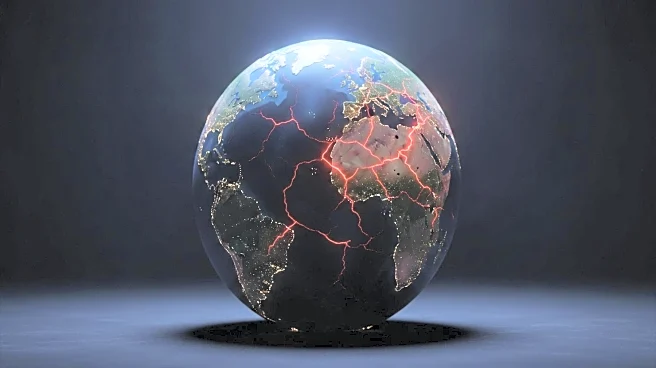What is the story about?
What's Happening?
A moderately strong earthquake with a preliminary magnitude of 5 struck Istanbul and other parts of northwestern Turkey on October 2, 2025. The earthquake, centered in the Sea of Marmara off Tekirdag province, occurred at 2:55 p.m. local time. It prompted evacuations from schools and sent residents running from buildings in panic. Despite the initial alarm, Turkey's emergency services reported no immediate damage or casualties. The Istanbul governor's office confirmed that initial assessments showed no signs of damage. Istanbul, a city of 16 million, remains at risk for major earthquakes due to its location on significant fault lines.
Why It's Important?
The earthquake highlights the ongoing seismic risks faced by Istanbul and the broader region, which sits atop major fault lines. This event serves as a reminder of the potential for more severe earthquakes, which could have devastating impacts on infrastructure and human life. The panic and evacuations underscore the need for effective emergency preparedness and response strategies in urban areas prone to seismic activity. The absence of damage or casualties in this instance is fortunate, but it emphasizes the importance of continued vigilance and investment in earthquake-resistant infrastructure and public safety measures.
What's Next?
While no damage was reported from this earthquake, authorities and residents in Istanbul and surrounding areas are likely to remain alert for potential aftershocks. The event may prompt further evaluations of building safety standards and emergency response protocols. Local government and emergency services may increase public awareness campaigns and drills to better prepare residents for future seismic events. Additionally, this incident could lead to discussions on improving urban planning and construction practices to mitigate earthquake risks.
Beyond the Headlines
The earthquake in Istanbul brings attention to the broader issue of seismic activity in Turkey, a country frequently affected by earthquakes due to its geological positioning. The event may influence policy discussions on national disaster preparedness and the allocation of resources for earthquake research and infrastructure improvements. It also raises questions about the long-term resilience of urban centers in earthquake-prone regions and the ethical considerations of ensuring public safety in such environments.

















